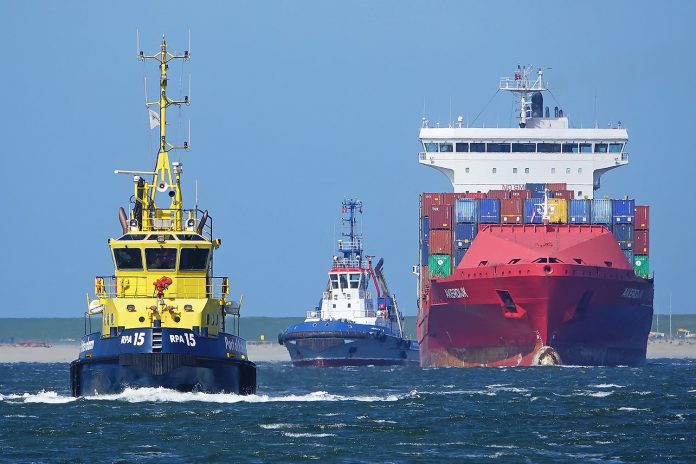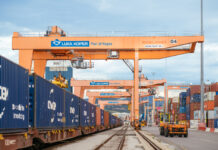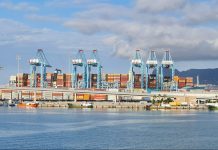
The Port of Rotterdam Authority is aiming to accelerate its agenda to reduce its own carbon emissions.
Today most of the CO₂ of the port of Rotterdam is emitted by the (patrol) vessels and another part comes from the use of cars and buildings, with the total annual number amounting to 4,000 tonnes.
The carbon emissions of the major European port are expected to be 75% lower in 2025 and 90% lower in 2030 compared to 2019.
However, as an ultimate goal, the Port of Rotterdam Authority wants its activities to be completely emission-free.
“We are going to reduce our own carbon emissions as quickly as possible, while compensating in full what we still emit,” said Allard Castelein, CEO of the Port of Rotterdam Authority.
“So, from that perspective, the Port Authority is already carbon neutral as we speak. Because our emissions will be lower and lower in the next few years, the compensation required will also decrease more and more,” he added.
Last year, the Rotterdam Port Authority used the so-called science-based targeting to calculate the amount of emission reductions needed to lift its weight to keep global warming below 1.5 ° C.
“This technique is a way of turning the Paris Climate Agreement into a company-specific goal,” said the port in its statement.
Thus, the Port Authority should achieve a reduction of at least 46.2% by 2030, compared to 2019.
However, because this goal seems achievable, the Port Authority chooses to raise the bar higher by rapidly reducing its own emissions by 90% until 2030.
To this end, the Port Authority will ensure that all its vessels will fully switch to biofuel in the short term, while at the same time it has the ambition that from 2025 the new ships will be emission-free.
Emissions from workers’ air travel will be reduced by 70% in 2025 and by 80% in 2030, through fewer flights and participation in a biokerosene programme, according to the port’s statement.
Reduction targets have been set for assignments that are also assigned to contractors of the Port Authority. In this case, it is a reduction of 45% by 2030 with the use of fuels (especially dredging and earthmoving) and 20% for (construction) materials.




